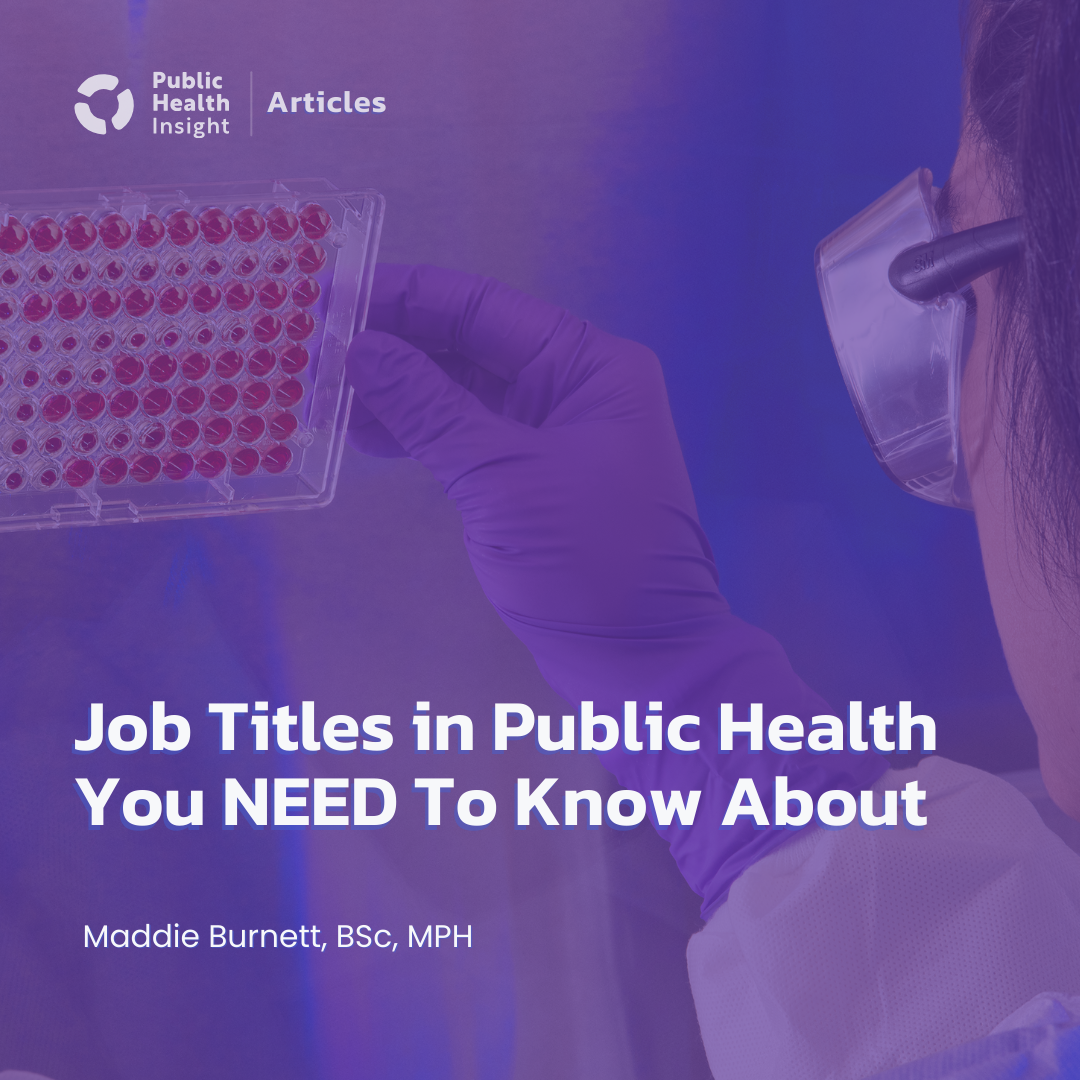
15/5/2024
“Starting a new job can be nerve-racking, but it’s also exciting. You’re embarking on a new future, positioning yourself to write a fresh story on a clean slate.”
Adena Friedman, President and CEO of Nasdaq
INTRODUCTION
As a current MPH student, I find myself answering the question “What can you do with your degree?” quite a lot. One of my go-to answers is “Well how much time do you have?” Many people don’t realize how vast the field of public health is, the number of different fields you may go into, and the job titles you may hold. If you, like me, have found yourself sitting on LinkedIn or some other job site not knowing exactly what to search for to find the jobs you want, this blog post should help you out by covering:
Data/Epi Based Roles
Since epidemiology is a popular field for people holding a degree in public health, here are some jobs in the epidemiology/data science field that may be of interest:
The inclusion of “GIS Analyst” on the list may be a surprise, after all, what does geography have to do with public health? GIS Analysts are very important and inform public health planning by analyzing how a disease is distributed across geographic regions. These professionals also help to look at health trends between neighbourhoods. This can help to target interventions specifically for those who need them, helping to maximize resource use.
Clinical Roles
Often there is confusion between public health and clinical health, which may leave you wondering why these jobs are included in this blog. Many clinical health issues have an impact on public health overall. Some health promotion programs need to be carried out in the clinical setting because of the technical nature of the activities. This means that there are jobs within public health for people with a more clinical skill set, examples being:
Health Protection Roles
Health protection is a major field within public health which includes jobs such as:
Some of these jobs focus on ensuring the environment around us is conducive to public health. For example, ensuring that stores and restaurants are storing and handling food correctly or contributing to and enforcing smoking/vaping policies both fall under the health protection umbrella. IPAC professionals also fall under this umbrella and work in multiple clinical settings like hospitals and long-term care homes to help prevent outbreaks. Finally, Emergency/Disaster planning is another aspect of health protection that helps plan for unexpected events that may impact the delivery of services from hospitals and public health units.
Family and Community Roles
Family and community public health roles deliver interventions that target individuals, families, and communities. For example, many public health units offer breastfeeding support to mothers. This work is very individualized, providing individuals and families with the unique care they need. However, these interventions have a very important public health impact. Some jobs in this realm of public health will include:
Planning, Implementation and Evaluation Roles
Planning, implementation, and evaluation jobs are ideal for people who love researching and figuring out what direction public health should take on a specific issue. These professionals stay up to date on current research and conduct their own studies to understand how to address the needs of the community they serve. This work then provides a foundation for evidence-based interventions and policies. These roles work in partnership with other organizations within the government and healthcare sectors to help build effective interventions. People within this field are often very skilled at health communication and written communication. Jobs within this sector may have a broader focus of implementation (eg. policies that will impact a whole province) or a smaller more targeted focus (eg. providing wellness support for a specific organization). These roles exist in all levels of government as well as non-government organizations and include:
Project and Program Roles
The main feature of project and program roles is the fact that they deal with quickly evolving, complex situations. The professionals in these roles work to ensure that specific goals set by an organization are met. They are responsible for gathering all the necessary information and approvals to get a project off the ground, then see the project all the way through to completion and disseminate any results and lessons learned. Roles within this sector include:
Knowledge Translation and Communication Roles
Knowledge translation and communication are often, mistakenly, seen as supportive roles. In reality, effective communication is one of the most critical activities in the world of public health. People within these roles must be able to create messages that will resonate with a wide variety of audiences. They work to break down complex evidence and communicate it to communities who will benefit most from the information. There are a variety of ways this can be carried out both through traditional methods and more modern methods. A lot of knowledge translation and communication happens on the internet these days. This means that people in these roles have a good understanding of social media and how it can be used to reach people.
Conclusion
From program planning to epidemiology to disaster management, public health is such a vast field with a wide variety of jobs. Whether you love math and data, staying up to date on current research, or providing hands-on health education, there is a job in public health for you. Next time you’re on LinkedIn, try searching for some of these job titles instead of just searching “public health”, you never know you might just find your next role.
Other Related Material
Written by: Maddie Burnett, BSc, MPH